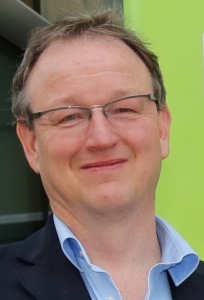Pr Gilbert Cockton - Creatively led Digital Applications
09:00
Vendredi
26
Sep
2014

Bio : Gilbert Cockton is Professor of Design Theory and Head of the Department of Media and Communication Design at Northumbria University (Newcastle upon Tyne, UK). His PhD and initial research addressed architectures and notations for interactive systems design (1982-1996). He then shifted attention to user-centred research and evaluation practices (1995-2011). This led to a later focus on creative design practices (2009 onwards) following his move from Computing to Design. He thus has experience of all three major design paradigms (applied arts, engineering, human-centred), but favours none. His current research has two strands: frameworks for combining design paradigms to benefit from their combined strengths while reducing their combined weaknesses; supporting design and evaluation work through resources and approaches that properly exploit the realities of creative design work.
Computer Science was originally viewed as a mathematical science. Next, Software Engineering was created as an engineering discipline. In both disciplinary traditions, clear problems, questions or hypotheses are explored through a rigorous replicable process that can be planned and managed. These disciplinary traditions remain important and essential for much software research and practice. User-centred design is largely a variant of engineering design that adds primary data collection as part of problem analysis and system testing (but does not always manage to exploit this data to good effect). However, engineering design management approaches require well defined problems where early precision here may not be possible. Careful planning and management depends on clear reliable requirements, and if these are not available, then alternative approaches have to be considered.
Innovation policy and practice sees creative design thinking as the essential component in creative worthwhile products and services. In this talk, I will begin with an overview of creative design practice. I will then compare this with more formal engineering project management practices, and identify tensions with the realities of creative design. I will then present a framework that allows practices from creative design to co-exist with those from the human-sciences and engineering. This framework draws on expertise from across my career, first in Computing Science, then in User-Centred Design, and most recently in Creative Design contexts.




